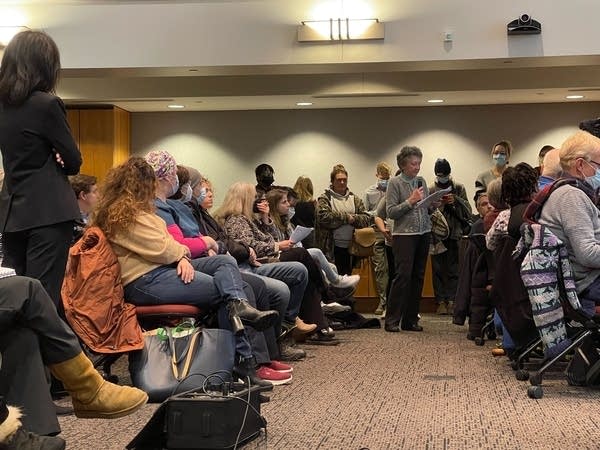Fairview/Sanford merger plan criticized, praised in meeting called by MN attorney general

Members of the public give their views on the potential merger of Fairview Health Services and Sanford Health in St. Paul on Tuesday.
Michelle Wiley | MPR News
Go Deeper.
Create an account or log in to save stories.
Like this?
Thanks for liking this story! We have added it to a list of your favorite stories.


